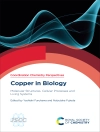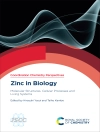Inorganic nanomaterials are an extremely broad and versatile class of materials and their enhanced chemical, thermal and mechanical stability with respect to their organic counterparts make them appealing candidates for a wide range of technological applications. Recent research has explored novel synthesis routes relying on non-standard conditions and in many cases, these unconventional routes are inherently sustainable. This book will provide a much needed overview of the fast-developing areas of green synthesis of metal nanoparticles, metal oxides and metal sulphides. These have a broad range of applications, including in catalysis, electronics, optics and nanomedicine. It will also show how it is possible to combine environmental and economical sustainability and will provide readers with a state-of-the-art and updated overview of lesser-known and emerging synthesis routes for inorganic nanomaterials. Suitable for advanced undergraduates, postgraduates and other researchers, it provides a convenient introduction to the topic.
表中的内容
- Inorganic Chemistry Within Nanoreactors
- Biogenic Synthesis of Inorganic Materials
- The Role of Supercritical Carbon Dioxide and Water in the Synthesis of Metal and Metal Oxide Nanoparticles: Current State of the Art, Further Perspectives and Needs
- Highly Efficient Rapid Preparation of Inorganic Nanostructured Materials by Microwave Heating
- In Situ Synthesis of Multifunctional Hybrid Nanocomposites Based on Graphene Derivatives and Inorganic Nanoparticles for Advanced Applications
- Further Sustainable and/or Unconventional Low-temperature Wet-chemical Synthetic Methods
关于作者
Silvia Gross is currently Full Professor of Inorganic Chemistry (SSD CHIM/03) at the University of Padova. Since 2016 she is also a DFG Mercator Fellow at the Justus-Liebig Universität Gießen, where she is regularly visiting professor two months a year since 2013. She is Project Technical Advisor (PTA) of the European Cluster on Catalysis for the European Commission (since 2014). Her current research activity, documented by about 145 scientific publications, is mainly focused on: synthesis and characterisation of organically modified transition metal oxoclusters and oxothioclusters (M=Zr, Hf, Ta, Ti-Hf, Hf-Ti-Zr, Ba-Ti, Cu, Zn) and of functional inorganic-organic hybrid materials; green synthesis of crystalline metal oxide, sulphide and halogenide colloids by wet chemistry and colloidal routes, mainly miniemulsions and solvo/hydrothermal synthesis at low or room temperature; investigation of crystallization mechanisms of inorganic materials under not standard conditions (e.g., confined space)
This synthesis activity is complemented by the time- and temperature- in situ and ex situ investigation of nucleation and growth mechanisms of inorganic colloids by different spectroscopic (XPS, XAS, Raman, FT-IR) and diffraction/scattering (SAXS, XRD) methods. She is Italian delegate in ESUO (www.esuo.org) and member of the board of the Italian Synchrotron Light Society (SILS), for the term 2014-2020. More than 40 invited lectures have been given at universities and research centres, as well as 18 invited talks at international conferences. Born in Padova in 1971, Silvia Gross studied Chemistry at the University of Padova, where she got her master degree (1996; mark: 110/110 cum laude) and Ph.D. in Chemical Sciences (2001). In 2001 she got a Lise Meitner Postdoctoral Fellowship from the Austrian Science Foundation and spent 18 months at the Technische Universität Wien. In 2002 she was appointed Researcher of the Italian National Research Council (CNR) and from 2010 to 2017 she has been Senior Researcher at the ICMATE-CNR.












